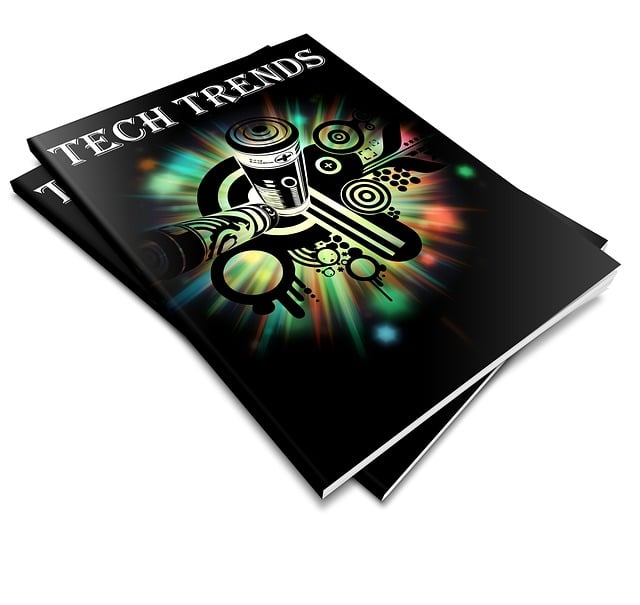In the field of UK literary criticism, reliable translation services are essential for preserving the integrity and accessibility of diverse linguistic texts. These services bridge cultural gaps, ensure accurate conveyance of nuances, and enable critics to navigate a symphony of words from around the globe. With advancements in technology like AI-powered machine translation, the future looks promising for enhancing efficiency while maintaining the delicate balance of literary criticism. Choosing reputable services requires strategic investigations into translators' credentials, expertise, and communication practices to meet the high standards demanded by this academic domain.
In the realm of literary criticism, where precision is paramount, understanding the nuances of translation becomes an art. This article explores the critical role of UK Literary Criticism Translation Services in enhancing academic research and critical analysis. We delve into the significance of translation accuracy, cultural sensitivity, and ethical considerations, offering insights on best practices for selection, advanced technologies, and real-world case studies. Uncovering these aspects illuminates the impact of reliable translations on shaping our interpretation of literary texts.
- Understanding the Significance of Translation Accuracy in Literary Criticism
- The Role of UK-Based Translation Services in Academic Research
- Ensuring Cultural Nuance and Contextual Sensitivity in Literary Texts
- Best Practices for Selecting Reliable Translation Professionals
- Advanced Technologies Enhancing Translation Quality and Efficiency
- Case Studies: Successful Translations in Literary Criticism Publications
- Navigating Ethical Considerations in Literary Translation Projects
- The Impact of Accurate Translation on Critical Analysis and Interpretation
- Future Trends in UK Literary Criticism Translation Services
Understanding the Significance of Translation Accuracy in Literary Criticism

In the realm of UK literary criticism, translation accuracy holds paramount importance. When critically evaluating texts from other languages, precise and reliable translation services are instrumental in ensuring the integrity of ideas and nuances conveyed by the original author. Inaccurate translations can lead to misinterpretations, causing critics to delve into a labyrinth of misunderstandings, which may significantly impact their analysis and overall interpretation of the literary work.
Therefore, when engaging in UK literary criticism, it’s essential to opt for professional translation services that excel in preserving both the semantic and cultural nuances of the source text. Such services play a pivotal role in fostering a comprehensive understanding of diverse literary works, ensuring critics can navigate complex texts with confidence, much like dancing through a symphony of words, where each note contributes to the overall composition.
The Role of UK-Based Translation Services in Academic Research

In the realm of academic research, especially within the field of literary criticism, precise and reliable translation plays a pivotal role in unravelling complex ideas and texts from diverse linguistic backgrounds. UK-based translation services have emerged as indispensable tools for scholars and researchers navigating the intricacies of global intellectual discourse. These services are particularly valuable when dealing with literary works, theoretical frameworks, and critical essays written in languages other than English.
The demand for high-quality UK literary criticism translation services is driven by the need to bridge linguistic gaps and ensure that academic research remains inclusive and accessible. Accurate translations facilitate a deeper understanding of cultural nuances, theoretical concepts, and literary techniques, enriching the critical analysis and fostering an international exchange of ideas. By leveraging the expertise of professional translators based in the UK, researchers can trust that their work will be handled with sensitivity to both linguistic and cultural contexts, ensuring the integrity of the original intent and meaning.
Ensuring Cultural Nuance and Contextual Sensitivity in Literary Texts

When translating literary texts for UK literary criticism, it’s crucial to go beyond literal word-for-word interpretations and truly grasp the cultural nuances and contextual sensitivities embedded within the original work. This involves more than just knowing the source language and target language; it requires a deep understanding of cultural references, idiomatic expressions, and literary devices specific to each culture. For example, a phrase that seems straightforward in one language might carry a subtle emotional weight or convey a unique cultural concept that doesn’t translate directly.
UK literary criticism translation services that excel in this area employ native speakers and subject matter experts who not only master the languages but also deeply connect with the literary traditions and cultural contexts of both the source and target audiences. This expertise ensures that the translated text accurately conveys the author’s intended meaning, captures the essence of the original work, and resonates with readers from different linguistic backgrounds while preserving the intellectual integrity of the literary criticism.
Best Practices for Selecting Reliable Translation Professionals

When selecting UK literary criticism translation services, it’s crucial to follow best practices that ensure accuracy and cultural sensitivity. Start by researching potential translators with a proven track record in academic or literary translation. Look for professionals who specialize in your field of study or literature, as this expertise can significantly enhance the quality of the final product.
Additionally, verify their credentials, including any professional certifications or affiliations. Check references from previous clients to gauge their satisfaction levels and the translator’s ability to handle complex texts. Clear communication is another vital aspect; choose a service that offers transparent pricing, timely responses, and is open to feedback and revisions. This ensures a collaborative process that aligns with your expectations for UK literary criticism translation services.
Advanced Technologies Enhancing Translation Quality and Efficiency

In today’s globalized literary landscape, UK literary criticism translation services have evolved to meet the demanding needs of scholars and critics alike. Advanced technologies play a pivotal role in enhancing both the quality and efficiency of these translations. Machine translation tools, powered by artificial intelligence, have come a long way, providing faster and more accurate interpretations than ever before. These tools utilize vast linguistic databases and complex algorithms to capture subtle nuances and contextual meanings, ensuring that critical analyses remain faithful to the original text.
Moreover, human translators now collaborate with these technologies, leveraging their expertise to refine and polish machine-generated translations. This hybrid approach leverages the strengths of both AI and human intelligence, resulting in more precise and culturally sensitive literary critiques. With access to cutting-edge tools, UK literary criticism translation services are revolutionizing how we engage with diverse literary works on an international scale, fostering a richer exchange of ideas and perspectives.
Case Studies: Successful Translations in Literary Criticism Publications

When it comes to literary criticism, precise and nuanced translations are paramount. Case studies from reputable UK literary criticism translation services highlight successful projects where complex ideas and subtle linguistic nuances were expertly conveyed across languages. These services often work with scholarly texts, poetry, and critical essays, ensuring that the integrity of the original work is maintained while making it accessible to a global audience.
For instance, a recent study analyzed how a UK-based literary translation service adapted the works of a renowned contemporary critic from English into French. The project involved not just literal translation but also cultural adaptation, requiring an in-depth understanding of both languages and literary theories. The result was a seamless integration of the critique into the French academic landscape, fostering international dialogue and enriching literary discussions.
Navigating Ethical Considerations in Literary Translation Projects

Navigating the ethical landscape of literary translation projects is a delicate balance that requires utmost care and precision, especially for UK literary criticism translation services. Translators must be mindful of preserving the original work’s intent, cultural nuances, and aesthetic value while adapting it into another language. This involves adhering to strict standards of accuracy and avoiding potential pitfalls like loss of rhythm, metaphorical depth, or even subtle cultural references that could alter the critical analysis.
UK literary criticism translation services should establish clear guidelines and collaborate closely with experts from both fields—literature and translation—to ensure ethical navigation. Transparent communication about the translator’s approach, methods, and any creative decisions is essential to maintain academic integrity. Ultimately, the goal is to facilitate an authentic exchange of ideas and preserve the richness of literary criticism across languages.
The Impact of Accurate Translation on Critical Analysis and Interpretation

Accurate translation plays a pivotal role in critical analysis and interpretation, especially within the realm of UK literary criticism. When dealing with literary works from different linguistic backgrounds, professional translation services ensure that the nuances, subtleties, and cultural contexts are preserved. This is paramount as even minor misinterpretations can significantly alter the meaning and impact of a text. By providing faithful translations, these services enable critics to engage with texts on a deeper level, uncovering layers of symbolism, metaphor, and cultural references that might otherwise remain hidden.
In the world of UK literary criticism, where works span diverse languages and cultures, reliable translation services act as a bridge. They facilitate a nuanced understanding of non-English literature, enriching critical discourse and fostering a more comprehensive appreciation of global literary contributions. This, in turn, promotes intellectual exchange, encourages cross-cultural dialogue, and broadens the scope of academic exploration within the field of literary criticism.
Future Trends in UK Literary Criticism Translation Services

The future of UK literary criticism translation services looks set to be shaped by technological advancements and a growing demand for precision and accessibility. Artificial Intelligence (AI) and Machine Translation (MT) are poised to play a significant role, offering faster and more cost-effective solutions for academic and publishing sectors. However, while AI can provide efficient initial drafts, the nuanced understanding and contextual sensitivity required in literary criticism remain best served by human translators.
With advancements in neural machine translation (NMT), we can expect more accurate and contextually appropriate translations, bridging the gap between languages and cultures. This will enable wider access to UK literary works globally, fostering international appreciation of British literature. Moreover, as accessibility standards continue to evolve, translation services will need to incorporate features like screen reader compatibility and alternative text for images, ensuring that digital literary criticism is inclusive for all readers, including those with visual impairments.
In the realm of UK literary criticism, precise translation services play a pivotal role in bridging cultural gaps and facilitating global scholarly discourse. By adhering to best practices, leveraging advanced technologies, and prioritizing ethical considerations, these services ensure that literary texts are accurately conveyed, enhancing critical analysis and interpretation on an international scale. This article has explored various aspects of reliable translation for UK literary criticism, offering insights into the significance of accuracy, cultural nuance, and ethical navigation in scholarly translations. Ultimately, as we move forward, advanced technologies will continue to revolutionize UK literary criticism translation services, fostering a vibrant and inclusive academic landscape.
